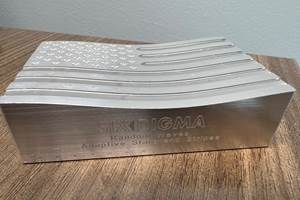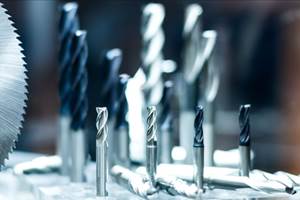The Case for Consistency
Why do manufacturers ask their employees to work within defined systems? Here's why consistency matters.
Share





Every machine shop that advances in success and sophistication eventually has to transition from being a band of craftsmen into operating within a system of defined procedures. The tribe becomes an enterprise. The craftsmanship is still there, but now it is directed toward refining the overall system rather than just making individual parts.
At one shop I visited recently, I was privileged to be present at that transition moment—a moment in which the shop decided to pursue ISO certification. During a crew-wide lunch in which long tables were set up near the shop floor, the shop’s owner and manager overseeing the ISO efforts described the aim of the new system of procedures that would define the shop’s processes. The men described how the defined procedures could (and should) change if they proved problematic, but that following standard procedures would define the shop's culture moving forward. The ISO manager then turned to me, as one who has seen and known a lot of shops, and asked if I would comment on why consistency is important in manufacturing.
What a big question! But what an important question worthy of an answer. What follows is not what I said. What follows is what I would have said had I composed a concise response. The case for systemization, the case for defined procedures in manufacturing, includes the following. Why consistency? Here are the reasons:
Inconsistency Multiplies Cost
Different people performing the same operation in different ways leads to the need for different resources. For example, one machinist may use a tool for a particular job that others do not. Funding different personal preferences produces extra expense.
Inconsistency Gives Error More Opportunity
Every error in manufacturing is the result of a variable that slipped beyond the parameters of control. With fewer variables, error-free manufacturing is easier to maintain. Expanded variables from varying procedures means more can go wrong.
Inconsistency Turns People Into Variables
If team members A and B follow different procedures, then the choice of A or B has an impact on the success of the job. Production shouldn’t be personal.
Inconsistency Makes the Shop a Black Box
Problems have to be diagnosed, with the diagnosis sometimes running upstream through the supply chain. The cause of a poor outcome in a part or assembly can be discovered if every step leading to the outcome is known. If the machine shop has variable procedures, then the path of diagnosis ends at its door. The more critical the part, the more concerning this is.
Inconsistency Clouds the Way to Improvement
The shop that knows its procedures knows what procedures are underperforming and therefore can see precisely what to fix to make its next advance.
Inconsistency Impedes Training
If the way you work is by personal art, then I may or may not be able to learn it. But if the way you work is according to defined steps, I can follow and learn those steps.
What would you add? What benefits has systemization brought to your shop? I'd like to revisit this topic by quoting others on their answer to this same big question. Why consistency? Email me.
Related Content
Building Machines and Apprenticeships In-House: 5-Axis Live
Universal machines were the main draw of Grob’s 5-Axis Live — though the company’s apprenticeship and support proved equally impressive.
Read MoreAddressing the Manufacturing Labor Shortage Needs to Start Here
Student-run businesses focused on technical training for the trades are taking root across the U.S. Can we — should we — leverage their regional successes into a nationwide platform?
Read MoreManufacturing Technology and Training in Europe
NTMA’s European Tech Tour exposed attendees to the latest technology and traditional training methods used by European manufacturers.
Read MoreInside Machineosaurus: Unique Job Shop with Dinosaur-Named CNC Machines, Four-Day Workweek & High-Precision Machining
Take a tour of Machineosaurus, a Massachusetts machine shop where every CNC machine is named after a dinosaur!
Read MoreRead Next
AMRs Are Moving Into Manufacturing: 4 Considerations for Implementation
AMRs can provide a flexible, easy-to-use automation platform so long as manufacturers choose a suitable task and prepare their facilities.
Read MoreLast Chance! 2025 Top Shops Benchmarking Survey Still Open Through April 30
Don’t miss out! 91ÊÓƵÍøÕ¾ÎÛ's Top Shops Benchmarking Survey is still open — but not for long. This is your last chance to a receive free, customized benchmarking report that includes actionable feedback across several shopfloor and business metrics.
Read MoreMachine Shop MBA
Making Chips and 91ÊÓƵÍøÕ¾ÎÛ are teaming up for a new podcast series called Machine Shop MBA—designed to help manufacturers measure their success against the industry’s best. Through the lens of the Top Shops benchmarking program, the series explores the KPIs that set high-performing shops apart, from machine utilization and first-pass yield to employee engagement and revenue per employee.
Read More























